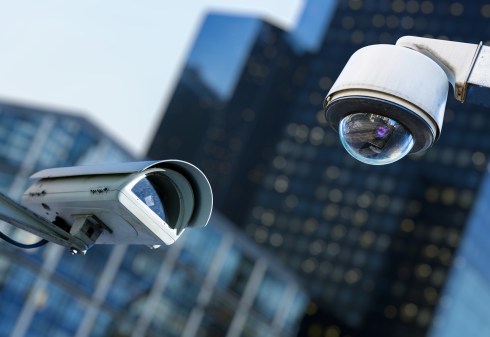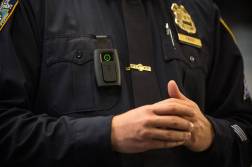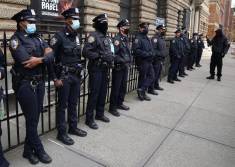Baltimore debating body cameras for police department
Body cameras for police officers are coming to Baltimore, but the questions remain how and in what form.
The Baltimore City Council recently approved a measure that would outfit the city’s police department with body cameras, but Mayor Stephanie Rawlings-Blake intends to veto the bill – not because she does not believe in body cameras, but because she has her own plan to outfit the city’s officers.
Before going forward, Rawlings-Blake wants to allow a working group she created with the city’s police department to produce a written report that will address concerns about the program’s cost and privacy issues for residents.
She said the city council’s bill is a knee-jerk reaction to the shooting of Michael Brown in Ferguson, Missouri, earlier this year and does put enough thought into what is a complex issue of public safety and privacy.
“I refuse to roll out a program that has not been carefully thought through,” Rawlings-Blake told the Baltimore Sun. “I’d rather be thoughtful and right than fast and wrong. … If I have to stand alone in making sure we get this right in Baltimore, then I will.”
In the wake of Brown’s shooting, there has been a louder call for police officers to be outfitted with cameras while on duty to record their interactions with the public.
The argument is that with actions being filmed, officers and citizens are less likely to become involved in situations, like in Ferguson, where Brown was shot and killed by a police officer following a robbery. Some believe Brown’s death could have been avoided.
Civil liberty activists, however, have concerns that the cameras could infringe on the privacy rights of citizens, and have called for strict rules and regulations for what can be filmed and in what scenarios the cameras would be used.
The technology required for the cameras also presents a challenge. With officers capturing endless hours of video that must be stored digitally, municipalities must be able to store the data — or work with a provider that can store it — while keeping in line with citizen privacy along with following court procedures.
Baltimore’s 3,000-officer police department has faced some recent claims of police brutality. In September, two different cases were filed, and each time there was video of the incident taken with cell phone cameras, although it was not the best of quality.
The cameras could document the actions of officers who act inappropriate, advocates argue. They also could provide a record of when officers are justified in using force.
Earlier this year, the Baltimore Sun shined a light on millions of dollars the city has paid to settle police brutality lawsuits out of court using taxpayer money.
One area Baltimore can look for advice is its neighbor to the south Washington, D.C., which recently started a pilot program that lets officers test a handful of different cameras to be worn while on duty.






